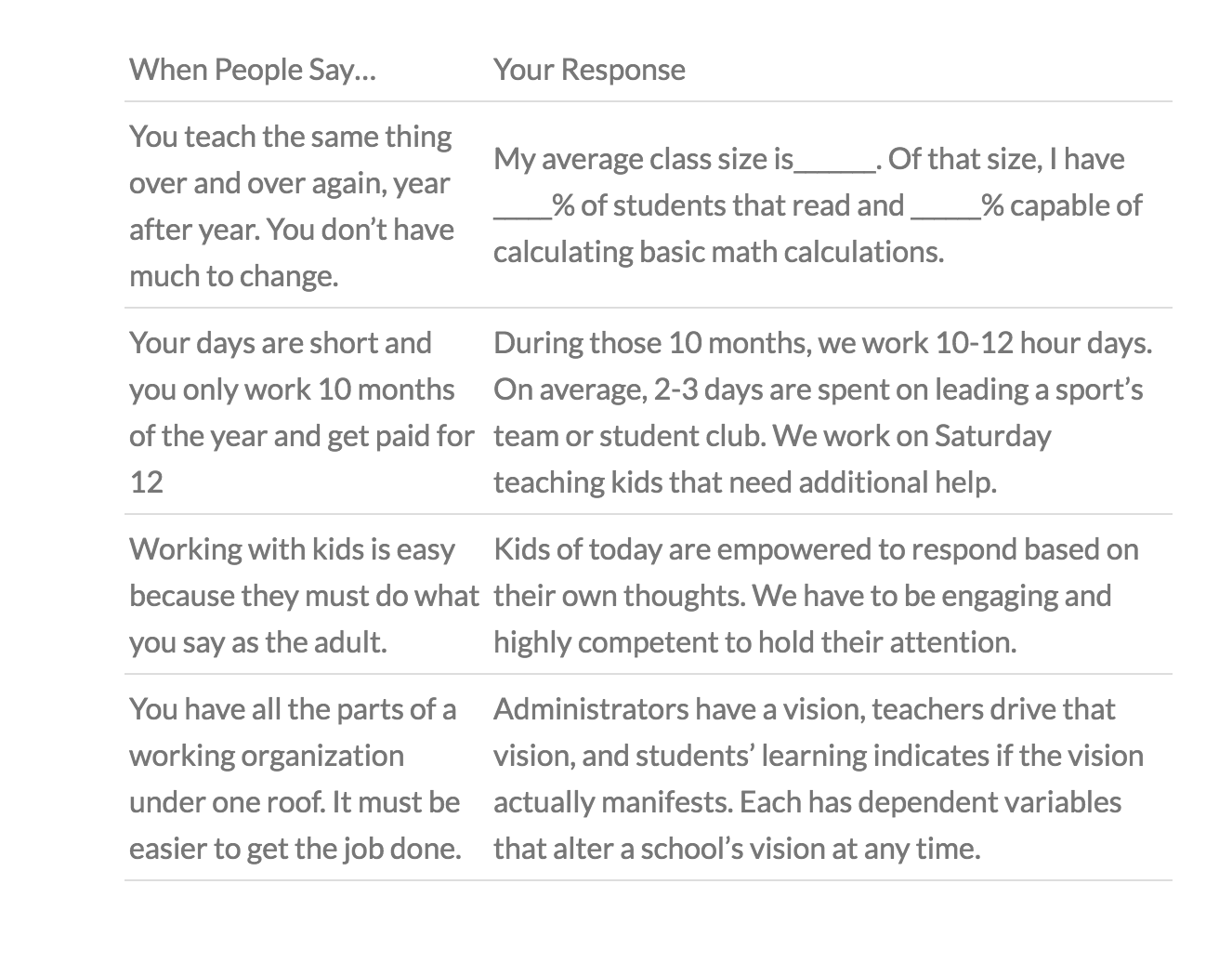
Jul 10, 2017 12:00:00 AM
 My Call to Action — Now that you know why teachers are
never off, follow through with one of these recommendations:
My Call to Action — Now that you know why teachers are
never off, follow through with one of these recommendations:
Kalyca, who has taught middle school English in the Bronx for 13 years, is the eldest child of a registered nurse and social worker originally from Altamonte Springs, Florida. She steadily looks for ways to invest in educational dialogue for the creation of transformative change. She currently serves on the United Federation of Teachers’ Education Task Force to formulate suggestions around the Common Core Standards revisions. Kalyca has served as a lead teacher, peer instructional coach, and a cooperating teacher for a Hunter College English education student teacher. Kalyca is also a Bronx trained mediator through the Institute of Mediation and Conflict Resolution (IMCR) and believes in restorative justice practices when holding adolescent children accountable. Her latest endeavor involves drafting a charter to open a social justice charter school in New York City. Kalyca holds a B.A. in literature from The Florida State University, Tallahassee, Florida ( Go Noles!) and a M.S. in negotiation and conflict resolution from Columbia University, New York.
The story you tell yourself about your own math ability tends to become true. This isn’t some Oprah aphorism about attracting what you want from the universe. Well, I guess it kind of is, but...
If you have a child with disabilities, you’re not alone: According to the latest data, over 7 million American schoolchildren — 14% of all students ages 3-21 — are classified as eligible for special...
The fight for educational equity has never been just about schools. The real North Star for this work is providing opportunities for each child to thrive into adulthood. This means that our advocacy...
Your donations support the voices who challenge decision makers to provide the learning opportunities all children need to thrive.
Ed Post is the flagship website platform of brightbeam, a 501(c3) network of education activists and influencers demanding a better education and a brighter future for every child.
© 2020–2024 brightbeam. All rights reserved.
Leave a Comment